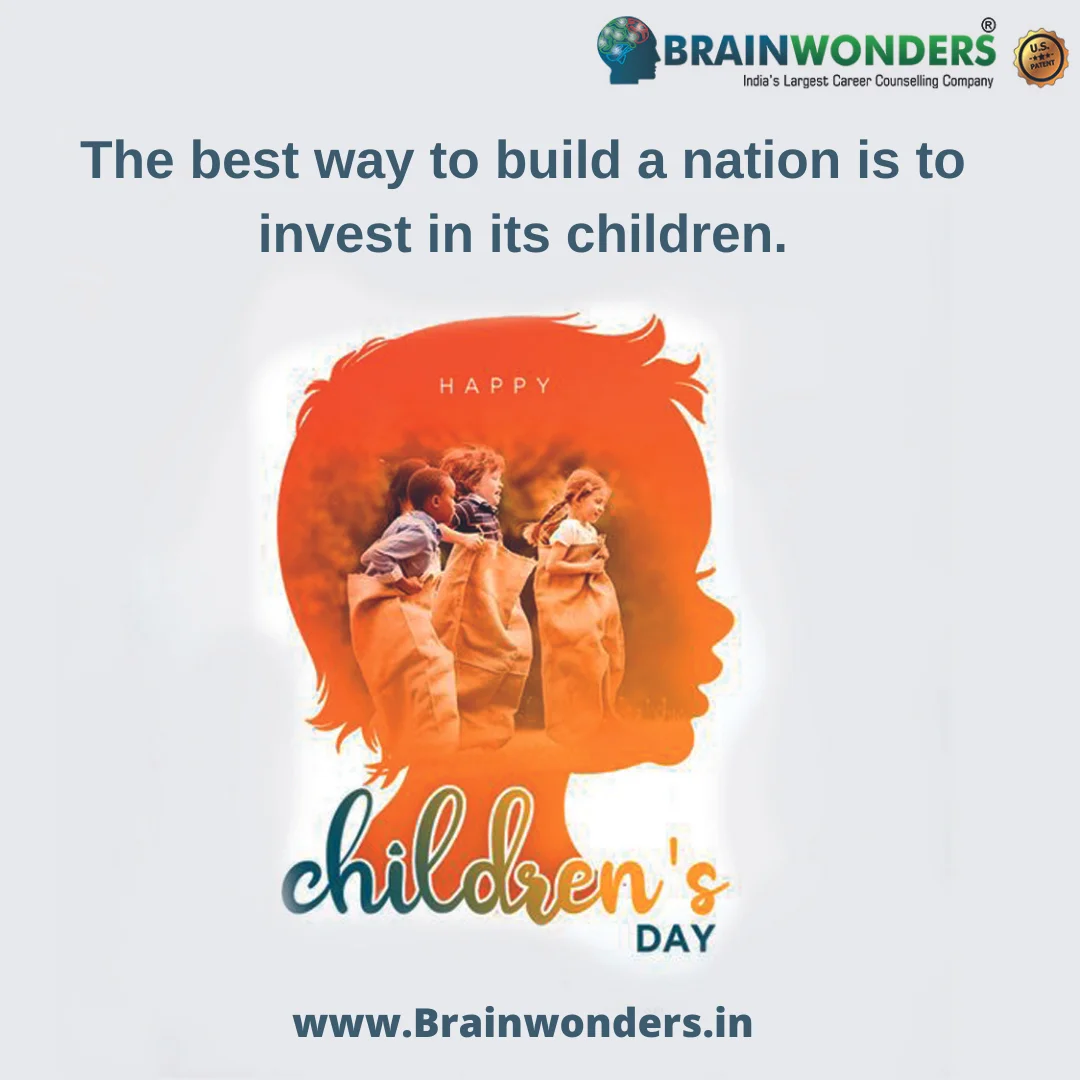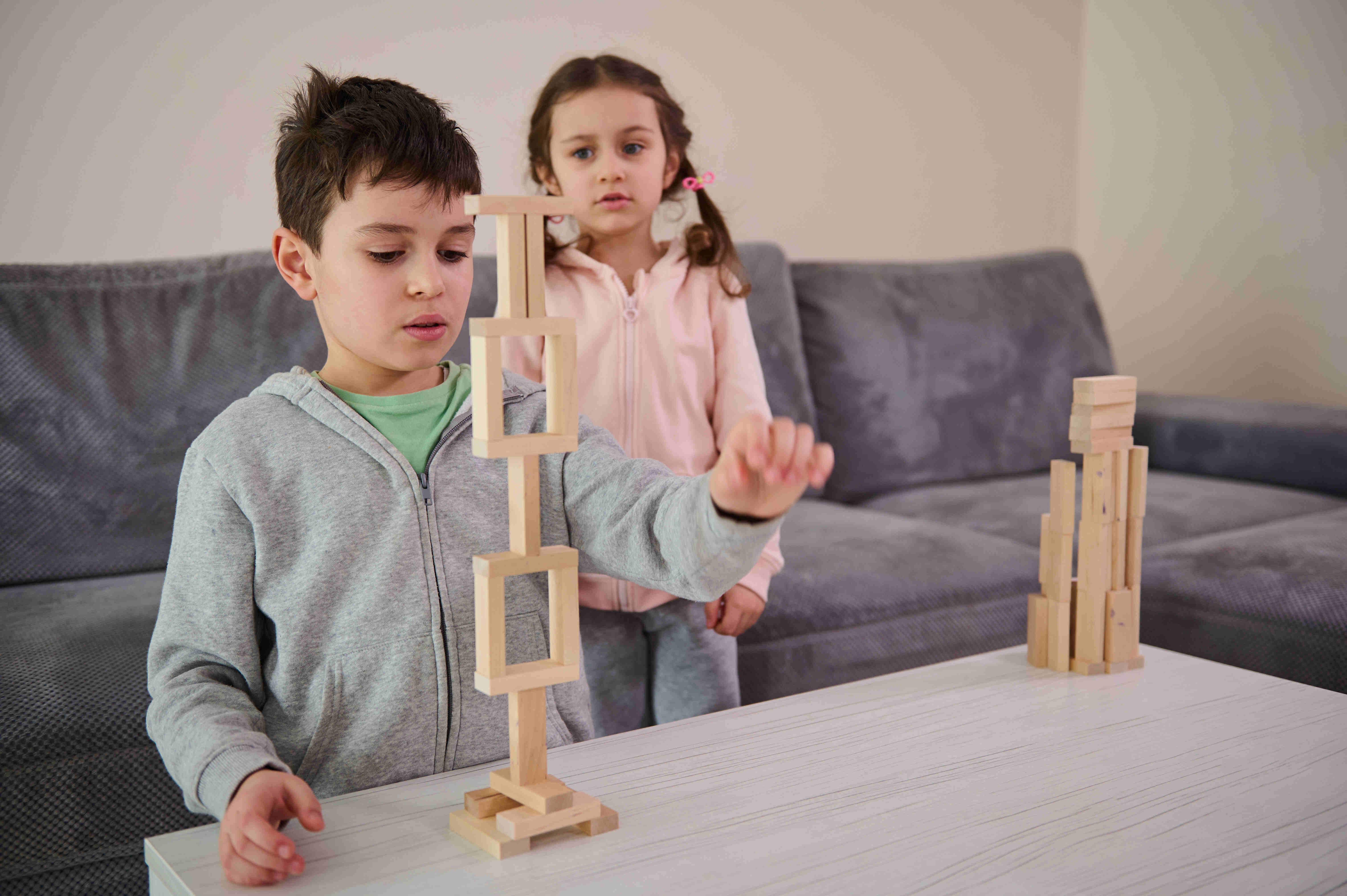

We have a database of over 11,000 colleges all over India.
Connect with us to find your perfect fit!
Blog
09 January,2023 | By Brainwonders

The day is observed in India every year on November 14 to honour the birth of Jawaharlal Nehru, the country's first Prime Minister.
The 14th of November is also known as Bal Diwas since it is honoured as a reminder that children are the nation's genuine strength.
Today's children, Nehru felt, will shape the country's destiny. He had a soft spot in his heart for youngsters, and his love for them earned him the nickname "Chacha Nehru."
After Nehru died in 1964, India began to commemorate Children's Day on November 14th. Before then, the country commemorated Children's Day on November 20th, the same day as the United Nations celebrated it throughout the world.
Children, Nehru believed, were a vital component of nation-building, and how they were nurtured would have an impact on how the country evolved and shaped up in the future.
His goal was to provide a bright future for the country's young via education so that they might lead the country to new heights. Children's Day strives to raise awareness about children's rights, care, and education, in addition to paying homage to Pandit Nehru.
The focus for this year's World Children's Day is to assist children in recovering from the disruptions and learning losses caused by the epidemic in the previous two years. Between November 14 and November 20, UNICEF India and its partners have planned a variety of activities - both virtual and real – to call attention to this problem.
For most individuals in India, life has changed and will continue to change as a result of the COVID-19 pandemic. Significant changes to children's routines e.g., school and child care closures, social separation, and home confinement) may cause them to lose their feeling of structure, predictability, and security.
The epidemic has had a significant influence on children's learning processes. Schools have been shut for almost a year now. An entire generation's future is on the line. Since early 2020, disruptions to education systems have resulted in significant losses and inequities in learning, which has been exacerbated by the COVID-19 pandemic, which has produced rapid and deep changes over the world. More than 1.6 billion children have missed school for months at a time, if not the entire year, and many are still out of school. Simply reopening schools, however, is insufficient. Students will require individualised and ongoing support to help them adjust and catch up following the epidemic.

Children's life was drastically altered as a result of the epidemic. It was simpler to learn in the classroom since it was simple to pay attention to the teacher's directions. For youngsters, the transition from face-to-face to online learning has been a difficult one. Parents and caregivers need to listen to their children's issues, console them, and reassure them at this difficult time.

Maintaining a routine gives you a sense of control, predictability, relaxation, and well-being. When children and other family members can interact with friends digitally, it also helps them respect others' desire for quiet or uninterrupted time. Ascertain that your children are following the same schedule as they were before the outbreak. They will stay active and energetic if they live a routine life. Parents must also ensure that the time spent studying, playing, and using social media or the internet is evenly distributed throughout the day. Alternatives include playing games with their children and setting aside time to converse and debate. Such leisure activities will assist you in establishing a strong bond with your children.

Stress affects children differently depending on their age. A toddler, for example, may exhibit behaviours such as bedwetting, clinging to parents, and sleep difficulties in response to an abrupt shift. Irritability, aggression, and clinginess are all symptoms that a preschool kid is under distress. On the other side, a teenager may spend more time on social media or engage in delinquent behaviour. Because children are so busy, parents may readily include them in their health. Here are a few activities that children can indulge in to maintain their well-being:

Because children have been learning at home for a long time, when school reopens, not every student will be on the same page in terms of grasping a topic. As a result, all returning students and teenagers should get the individualised services they require to satisfy their educational, health, psychological, and other requirements. Students receive quality remedial instruction to help them regain lost knowledge. To address learning deficits among their kids and use digital technology in their education, all teachers and parents must be educated and supported.

One of the most important things we've learned from the epidemic is to think outside the box. People have realized the value of the internet during the epidemic and have taken advantage of the opportunity to shine. Many people, for example, have found success with their YouTube and TikTok blogs. Similarly, for the current Gen Z age, it is past time to move away from traditional book education and try to teach them how to think creatively.
Focusing on increasing your child's talents is one method to teach them to think creatively. We are talking about vital life skills like communication, decision-making, empathy, and so on. Apart from that, children should be allowed to pursue their hobbies and learn about their abilities. Future counselling and testing can assist your kid in realising their potential and interests, allowing them to be more creative in their career choices.
In conclusion, let us collaborate to improve children's learning processes and assist them in achieving their full potential in this world.
Fill the form to know how!
